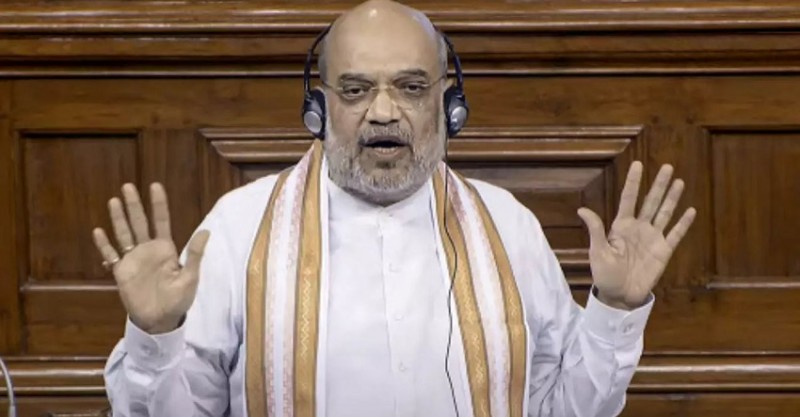
Union Home Minister Amit Shah commended the nation on Monday for the implementation of three groundbreaking criminal laws: Bharatiya Nyaya Sanhita (BNS), Bharatiya Nagrik Suraksha Sanhita (BNSS), and Bharatiya Sakshya Adhiniyam (BSA). Speaking at a press conference, Shah highlighted the shift towards an entirely 'Swadeshi' criminal justice system, marking a departure from colonial-era laws.
"In the wake of 77 years of independence, our criminal justice system is embracing 'Swadeshi' principles," Shah declared. "These laws are rooted in Indian ethos, replacing outdated colonial frameworks with laws enacted by the Indian Parliament. This transformation from 'Dand' to 'Nyay' promises swift justice and upholds the rights of victims and complainants."
Key Features of India's New Criminal Laws
India's new criminal laws, passed by Parliament in December, aim to modernize legal processes and adapt to contemporary challenges:
1. Innovative Legal Procedures:
Zero FIR: Allows filing complaints at any police station, streamlining legal actions.
Technological Advancements: Introduces online police complaints and electronic summons to enhance efficiency.
2. Swift Judicial Processes:
Timely Judgments: Mandates trial judgments within 45 days and charges framing within 60 days to expedite justice.
3. Protection for Vulnerable Groups:
Special Provisions: Enhances provisions for crimes against women and children, ensuring sensitive handling and rapid medical examinations.
4. Expanded Offenses:
New Definitions: Includes crimes like false promises of marriage and gang rape of minors, alongside a comprehensive terrorism definition.
Specific Provisions and Concerns
1. Clause 69:
Criminalizes sexual intercourse under deceitful means, with penalties up to 10 years, sparking debate over potential implications on consensual relationships.
2. Clause 103:
Establishes distinct offenses for murder based on race, caste, or community, addressing Supreme Court directives against rising incidents of lynching.
3. Extended Police Powers:
Extends police custody to up to 90 days under Clause 187(3), aiming to expedite trials but raising concerns about misuse and custodial rights.
4. Trials in Absentia and Statutory Bail:
Introduces trials in absentia similar to UAPA provisions, shifting burden of proof onto accused, potentially impacting fair trial rights.
Removes statutory bail provisions for those facing multiple charges, potentially prolonging pre-trial incarceration.
5. Community Service and Marital Rape:
Introduces community service for minor offenses like theft, deferring to judicial discretion on definition and implementation.
Addresses marital rape of minor wives, aligning with Supreme Court directives and closing gaps in existing laws.
These legislative changes represent a significant step towards a more efficient and equitable criminal justice system in India, balancing innovation with safeguarding rights and protections for all citizens.
Read Previous Coverages:
New Criminal Laws Take Effect Today, Replacing IPC, CrPC, and Evidence Act
New Criminal Laws to Take Effect in Arunachal Pradesh from July 1